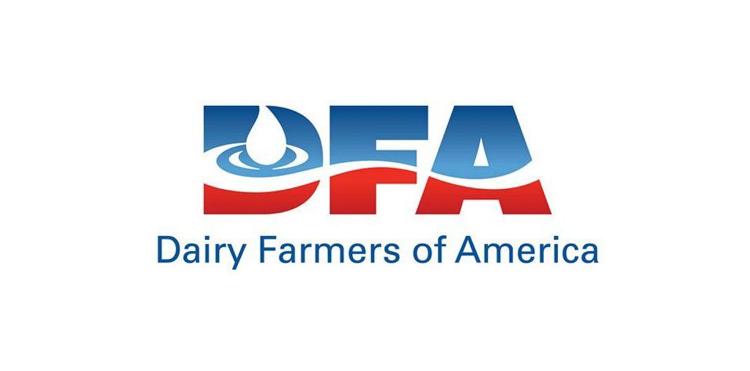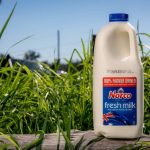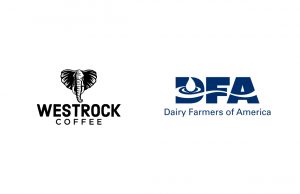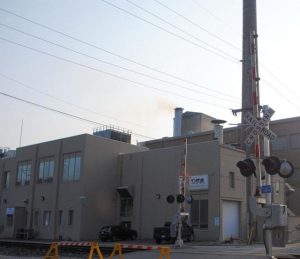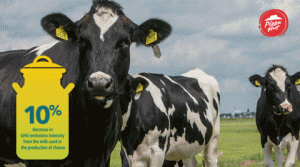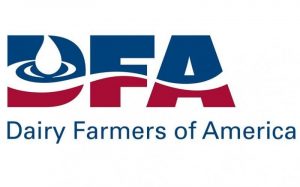
As a cooperative invested in the dairy supply chain from farm to table, DFA is taking a strong position by setting a science-based target and committing to reduce both direct and value chain greenhouse gas (GHG) emissions by 30% by 2030, from a base year of 2018. By having their targets validated by the Science Based Targets initiative (SBTi), DFA is supporting the Paris Agreement’s broader goals to keep global warming below 2 degrees Celsius. Additionally, DFA’s target is aligned with work of the Innovation Center for U.S. Dairy and its goals for the U.S. dairy industry to become carbon neutral or better by 2050.
“Our dairy farm families have always been great stewards of the land and environmentally focused, because it protects the land for future generations,” says David Darr, senior vice president and chief strategy and sustainability officer at DFA. “While the entire dairy industry from farm to manufacturer only contributes about 2% of total U.S. greenhouse gas emissions, we know it’s imperative to keep doing better and making improvements. So, we’re proud to take action and set this science-based target, which will help us further reduce our carbon footprint and do our part in taking care of our planet.”
To reduce climate impact and reach its science-based target, DFA, its businesses and its farm family-owners will work across its supply chain to reduce greenhouse gas (GHG) emissions on farms, in processing plants and on the road. Key strategies to achieve the target include:
Mitigating methane emissions from cows by supporting advances in feed efficiency, herd nutrition and feed additives designed to reduce emissions
Using renewable energy methods, such as solar panels and wind power, on our farms and in our plants
Utilizing anaerobic digesters, which convert manure and food waste to energy, on farms and in plants
Capturing emissions through healthy soil and crops
Creating transportation and hauling efficiencies to reduce emissions
Exploring innovative technologies and solutions to reduce emissions and promote environmental stewardship
In addition to these efforts, DFA is exploring emerging technologies and working with other industry partners, such as Vanguard Renewables, a Massachusetts-based renewable-energy developer, to benefit our farm family-owners’ operations and reduce GHG emissions.
“We began working with Vanguard a few years ago, and our partnership with them continues to grow, as we think there’s a lot of opportunity to create synergies between our farms and plants,” says Darr. “In addition, we’re also looking at some innovative solutions to reduce food waste with startup companies, so there’s a lot of excitement for how we can continue to accelerate our sustainability initiatives.”
“We congratulate Dairy Farmers of America for becoming the first U.S. dairy cooperative to have its emissions reduction targets approved by the Science Based Targets initiative,” said Alberto Carrillo Pineda, Director, Science Based Targets and Renewable Energy at CDP, one of the Science Based Targets initiative partners. “By setting targets that are grounded in climate science, Dairy Farmers of America is positioning themselves as leaders in their sector and setting themselves up for success in the transition to a net-zero economy.”
The science-based target goal announced today is the latest step in DFA’s commitment to sustainably and responsibly produce milk and other dairy products. Earlier this year, the farmer-owned cooperative released its 2020 SOCIAL RESPONSIBILITY REPORT, “A Mark of Purpose,” which details its overall sustainability strategy and commitment to the planet, its people and communities.
“On our farms, in our facilities and on the road, our journey to continuously improving our social responsibility efforts takes a holistic approach,” adds Darr. “We are committed to developing solutions that reduce or eliminate carbon emissions, feed people around the world and help communities thrive.”
The Science Based Targets initiative mobilizes companies to set science-based targets and boost their competitive advantage in the transition to the low-carbon economy. It is a collaboration between CDP, the United Nations Global Compact, World Resources Institute (WRI) and the World Wide Fund for Nature (WWF) and We Mean Business.
